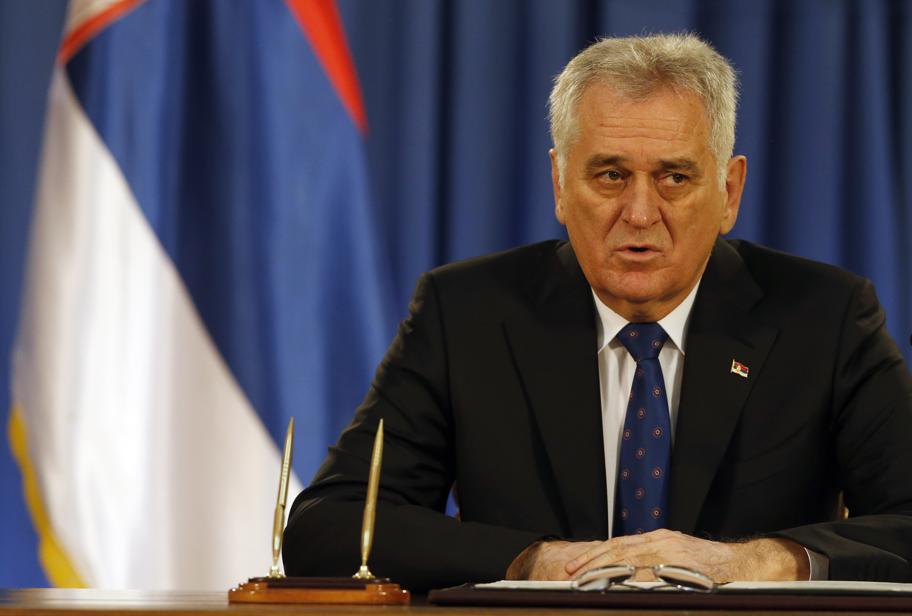
BELGRADE — A Serbian train halted at the border with Kosovo and bearing signs reading ‘‘Kosovo is Serbian,’’ has fueled a major crisis in the Balkans and escalated a potential Russia-West dispute over dominance in the heart of the war-torn region. Serbia accused Kosovo’s leaders on Sunday of ‘‘wanting war’’ and warned it would defend ‘‘every inch’’ of its territory, a day after the train, decorated in Serbian Christian Orthodox symbols and flags, was prevented from entering the neighboring nation.
Kosovo, supported by much of the West, declared independence from Serbia in 2008. But, Serbia and its Slavic Orthodox ally, Russia, do not recognize the split.
Serbia has sought to maintain influence in Kosovo’s north, where most of the country’s Serb minority lives. NATO-led troops have controlled Kosovo’s borders since a three-month air war in 1999 to stop a bloody Serbian crackdown on ethnic Albanian separatists.
Serbian President Tomislav Nikolic issued the warning Sunday after the passenger train, inscribed with ‘‘Kosovo is Serbian’’ in 20 languages and painted in the colors of the Serbian flag, was prevented from crossing into Kosovo, where his government contends ethnic Serbs are under threat from Kosovo Albanians.
‘‘Yesterday, we were on the verge of clashes,’’ Nikolic said in the strongest rhetoric since the NATO-led troops took control of Kosovo’s borders in 1999.
Kosovo Prime Minister Isa Mustafa said he had contacted the United States and the European Union to express his country’s concerns. ‘‘The time of provocation, conflicts, and wars should belong to the past,’’ Mustafa said, adding that such moves ‘‘are unacceptable, unnecessary actions that do not contribute to the normalization of the relations between our two countries.’’
Kosovo’s President Hashim Thaci said on Facebook that he hopes ‘‘Serbia has learned a lesson’’ from the latest incident.
Serbia is seeking European Union membership but has been sliding toward the Kremlin. Serbia has strained relations with most of its neighbors — something many analysts believe is a Russian influence.
Nikolic, who is pro-Russian, said the European Union and West have never been on Serbia’s side or come to its aid. He urged that Serbia halt its EU membership negotiation, including a key part that calls for normalization of relations between Serbia and Kosovo.
Nikolic also slammed the Obama administration, and US support of Kosovo’s independence — comments that reflected the presumption here that Donald Trump will be more favorable toward Serbia.



